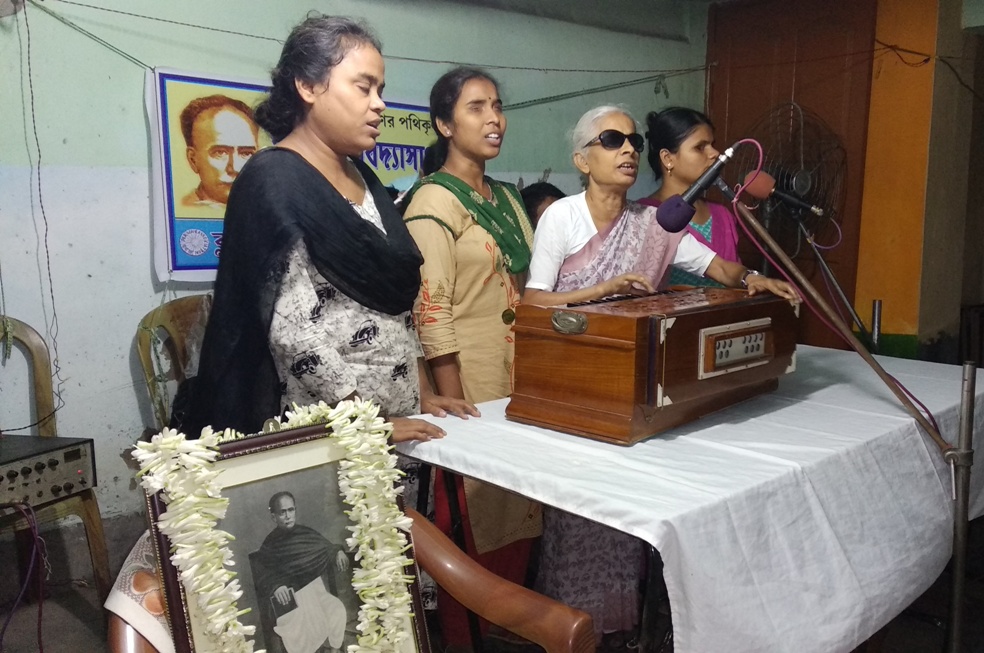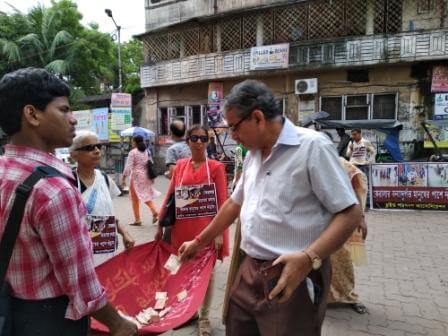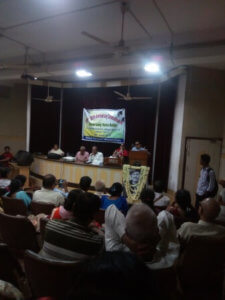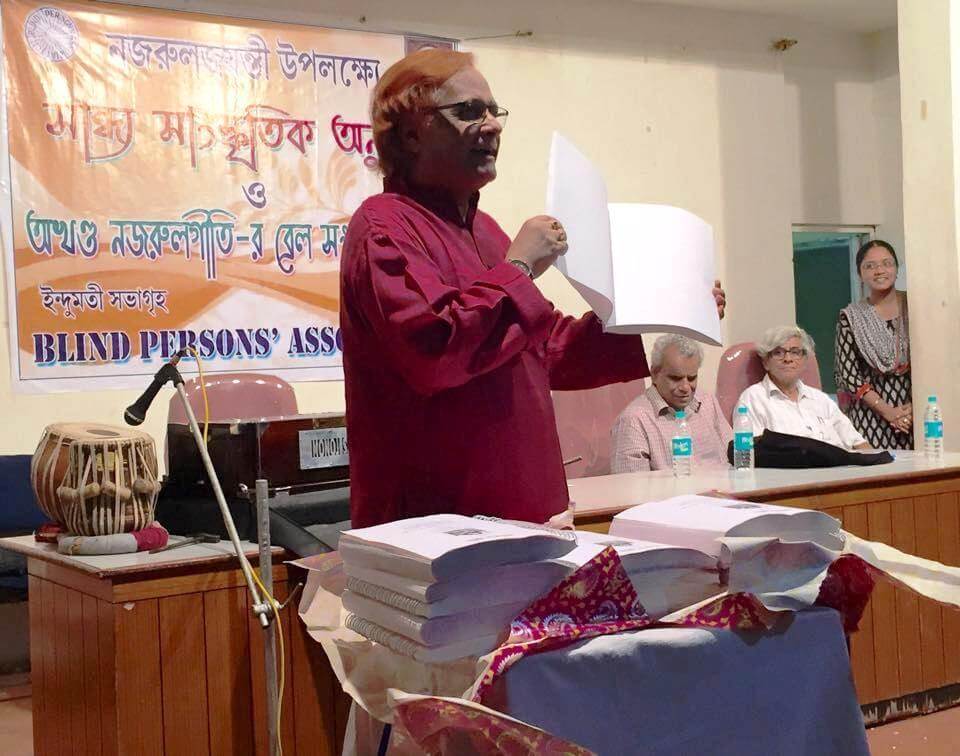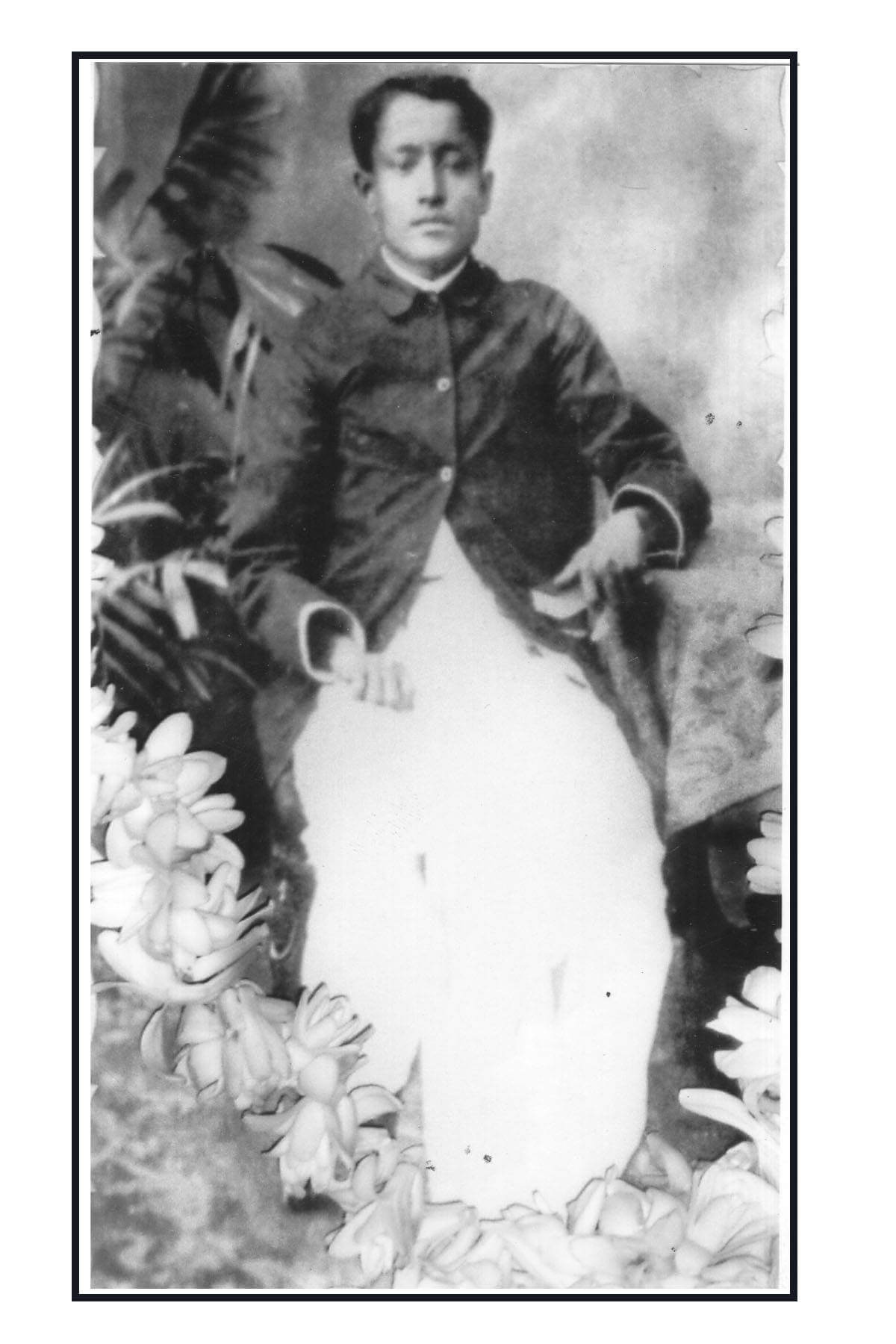If literature is the reflection of our perception of life, a general study of blindness represented in English literary texts exposes the prejudiced view regarding blindness of the society. Some related blindness to some kind of illicit sexual union, to some it is a tragic reversal of fortune. Some celebrated it as awakening of insight, and to some, the loss of sight is compensated through other senses; But more often than not, being blind in literature means the complete loss of personal, sexual, and political power. Although there are some instances of unbiased depiction of blindness by some blind writers but they are so few and far between and experience of blindness is so subjective in nature that the stereotyped representation remain the main motif so far.
A general survey of Classical and English literature shows that blindness is a transforming event, entirely removing the victim from the ordinary dimensions of life and humanity. Kenneth Jernigan‘s article, “Blindness: Is Literature Against Us?,” is a valuable source in that. It presents a fresh perspective on the subject. Jernigan meticulously reviews the positive stereotypes as well as the negative ones and expresses how detrimental they are in forming the other’s point of view about blindness.
Blind Characters in Literature
In The Meaning of Blindness, Michael E. Monbeck examines the clichés concerning the blind, based on his researches in fields such as literature, history and mythology. He comes up with a list, dividing blind characters into fifteen categories:
- Deserving of pity and sympathy
- Miserable
- In a world of darkness
- Helpless
- Fools
- Useless
- Beggars
- Able to function
- Compensated for their lack of sight
- Being punished for some past sin
- To be feared, avoided, and rejected
- Maladjusted
- Immoral and evil
- Better than sighted people (idealized)
- Mysterious.
This classification of course, is flexible and some of the categories almost overlap and some characters might be listed under a couple of them. But According to the principal themes of literature and popular culture, blind characters across the ages can be classified in to two categories: blindness that reinforces the negative stereotypes and, loss of sight which is blessing in disguise.
Blindness as Total Tragedy
The most persistent and most damaging image is the image of blindness as total tragedy. From the ancient Hebrew saying, “The blind man is as one dead”, to the hopeless utterance by one of the best English poets john Milton, blind himself–
Blind among enemies, worse than chains,
Dungeon, or beggary, or decrepit age!
… Inferior to the vilest now become
Of man or worm; the vilest here excel me,
They creep, yet see; I, dark in light, exposed
To daily fraud, contempt, abuse, and wrong,
Within doors, or without, still as a fool,
In power of others, Never in my own;
Scarce half I seem to live, Dead more than half
… Myself my sepulchre, a moving grave;
It summed up the argument that blindness is total disaster. Commenting on the impact of negative stereotypes on Milton, Jernigan wrote, “Betrayed by the forces of literature and tradition, Milton (in his turn) betrayed himself and all others who are blind.” Milton was perhaps influenced by his literary ancestors like Isaac in the Old Testament who was duped by his son Jacob due to his blindness, The Oedipus cycle of Greek tragic plays where the king puts out his own eyes and where the statement occurs: “Thou art better off dead than living blind”, Chaucer’s “The Merchant’s Tale” where an young wife, married to an old blind man, deceives him by meeting her lover in a tree while taking the husband for a walk, and, Shakespeare’s Gloucester in “King Lear” who was so thoroughly confused and helpless that he can be persuaded of anything and deceived by any trick.
An unusually harsh example of the duping of blind people is found in the sixteenth-century play “Der Euienspiegel mit den Blinden”. The hero meets three blind beggars and promises them a valuable coin to pay for their food and lodging at a nearby inn; but when they all reach out for the money, he gives it to none of them, and each supposes that the others have received it. After they go to the inn and dine lavishly, the innkeeper demands his payment; and each of the blind beggars thereupon accuses the others of lying, thievery, and assorted crimes. The play has a “happy ending,” but what an image persists of the character of those who are blind: criminal and corrupt, contagious and contaminated, confounded and confused, wandering homeless and helpless in an alien landscape.
In Victorian and Modern age also the disaster concept was as popular as ever. José Saramago in “Blindness of all extremities chooses blindness as an agent to expose the dormant animalistic qualities of humanity. In Kipling’s book, The Light That Failed, The hero, Dick Heldar, upon learning that he is to become blind, remarks: “It’s the living death …. We’re to be shut up in the dark… and we shan’t see anybody, and we shall never have anything we want, not though we live to be a hundred.” And when this self-pitying character finally manages to get himself killed (to the relief of all concerned), the best Kipling can say of him is that “his luck had held till the last, even to the crowning mercy of a kindly bullet through his head.” Joseph Conrad, in “The End of the Tether”, kills off Captain Whalley by drowning, as a fate much preferable to remaining alive without sight. For those writers the tragedy of blindness is too unbearable to leave them alive without returning their sight.
In literature blindness is depicted also as wickedness. “Blind Pew,” in Stevenson’s “Treasure Island” with ugly appearance and dreadful voice, an old blind man in “Lazatillo de Tormes”, E.T.A. Hoffmann‘s The Sand-man, John Gardner‘s Nickel Mountain are some of them.
Theme of Blindness in Literature
Alternating with the theme of blindness as perfect evil is its exact reverse: the theme of blindness as perfect virtue. The association of blindness with compensatory powers has its roots in classical mythology. As compensation for the punishment, blind victims were conferred with the power of prophecy or some other exceptional skill. Thus, Homer was compensated by the gift of poetry; the gift of prophecy was bestowed on Tiresias. Surviving through the passage of the ages, divine retribution found its way to blind detectives like Sir Arthur Conan Doyle’s Sir Nigel with super auditory ability, Max Carrados, to whom being blind is like living in “fourth dimension” and, Captain Duncan Maclain, the best of all the private eyes without eyes, who by Shooting to kill by sound, playing chess with fantastic precision, and, of course, quickening the hearts of the opposite sex won the unreserved admiration of reviewers”.
That blindness as a transforming eventthe removes victim from the ordinary dimensions of life is evident in Melody by Laura Richards’ where The blind child,” in the same name, we are told , “touched life with her hand, “The Blind Girl of Wittenberg”, by John G. Morris, where the blind heroine claims to possess a beautiful world within herself and a light more brilliant than the sun. in the same vane of saccharine sweetness There is Bertha, Dickens’ ineffably sweet and noble blind heroine of “The Cricket on the Hearth”, There is the self-sacrificing Nydia, in “The Last Days of Pompeii”, there is Naomi, in Hall Caine’s novel, “Scapegoat”, and there is pure and ecstatic Dea of Victor Hugo’s The Man Who Laughs. “This assumption of compensatory powers”, jernigan writes,”removes the blind person at a stroke of the pen from the realm of the normal—the ordinary, everyday world of plain people—and places him in a limbo of abnormality.”
Although rare, there are few portrayals that stand out in the literary gloom like a light at the end of a tunnel. This image of truth is found in tale of “Rosamund Gray” by Charles Lamb, which presents an elderly blind woman who is normally competent and normally cantankerous. In Sir Walter Scott’s “Old Mortality” and “The Bride of Lammamoor”, in Wilkie Collin’s “Poor Miss Finch”, in Charles D. Stewart’s “Valley Waters”, and in “Far in the Forest” by H. Weir Mitchell, there is no aura of miracle nor even of mystery, no brooding or mischief, no special powers attributed to the blind.
So, irrespective of the social progress made by the blind people and their ability to adapt to their blindness in real life, an image of a normal blind man with his vice and virtue, anguish and aspiration is hard to come by in literature. And perhaps that is why Georgina Kleege in “Sight Unseen” wrote,” As a blind reader, I am not so naive as to expect that fiction should provide me with role models, but it’s hard not to cringe at traditional representations of blindness as a life-ending tragedy. And while the notion that a blind person can bring enlightenment to sighted peers shows progress, it still makes me weary and somewhat alarmed. So I admit a certain surge of triumph when Lawrence’s blind man takes the annoying sighted man in hand, when Coetzee’s blind Barbarian rejects sightest labels, when the citizens of Wells’s country of the blind dismiss sight as a troublesome mental irritant.”
Sources
- Blindness: Is Literature Against Us?
An Address Delivered by Kenneth Jernigan, President, National Federation of the Blind
At the Banquet of the Annual Convention
Chicago, July 3, 1974. - Monbeck, Michael E. The Meaning of Blindness: Attitudes Toward Blindness and Blind People. Bloomington: Indiana University Press, 1973.
- Kleege, Georgina. Sight Unseen. New Haven: Yale University Press, 1999.
Debkumar Dandapath
The author is a teacher of English and a voracious reader of novels. Visit our Articles section for more articles on blindness and related topics.

